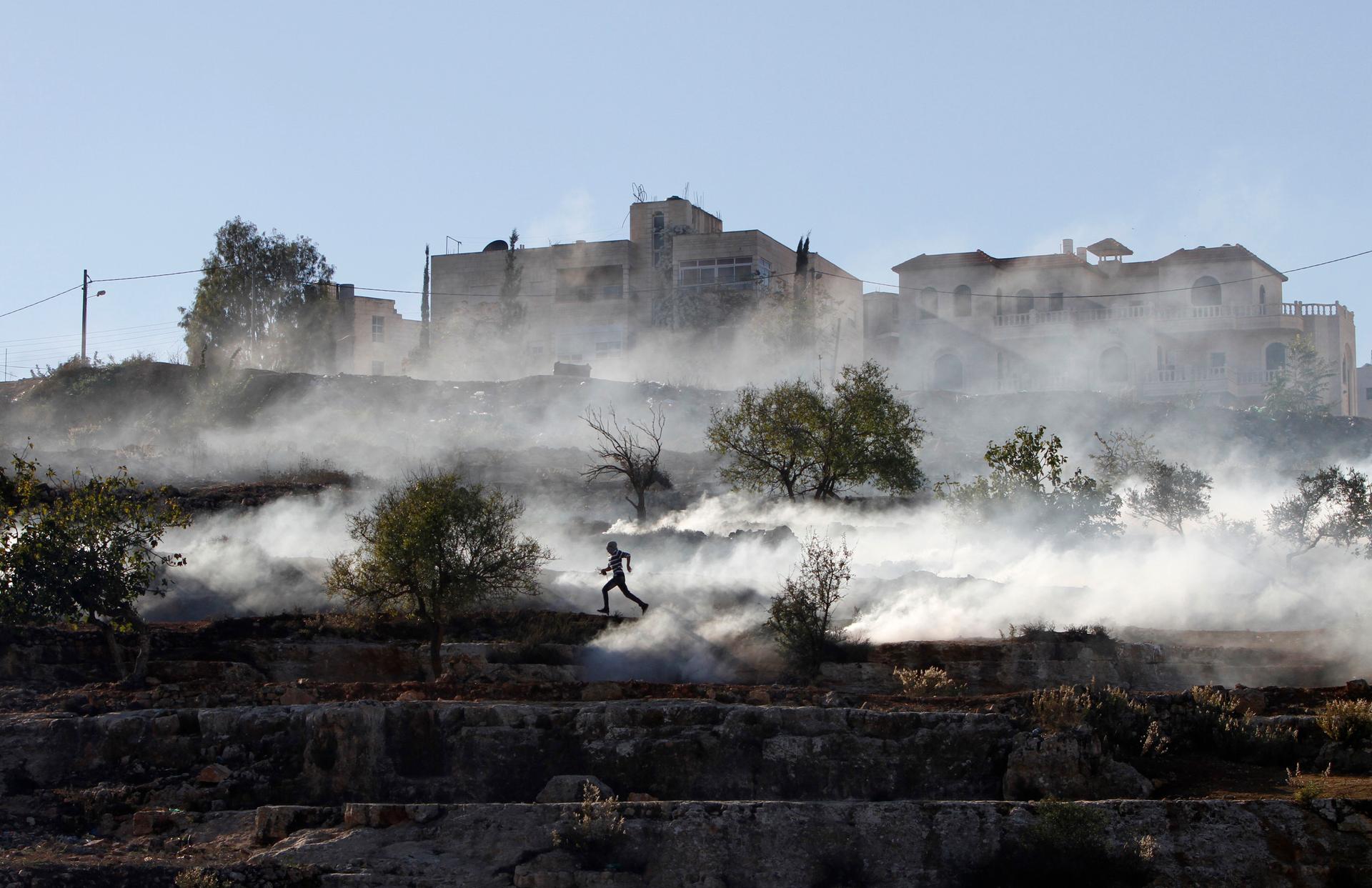Death toll rises in violent confrontation over Gaza Strip
A Palestinian stone-thrower runs after Israeli security forces fired tear gas during clashes against Israel’s military operation in Gaza, outside Ofer prison near the West Bank city of Ramallah Nov. 15, 2012. (Photo by Mohamad Torokman/Reuters.)
Earlier this week, in response to rocket attacks from Hamas-controlled Gaza Strip, Israel launched a series of air strikes that killed Hamas military leader Ahmed al-Jabari.
But the violence has continued, with both Palestinian militants and Israeli forces continuing a deadly exchange. Both sides have reported a number of casualties — including at least 16 in Gaza, four of whom were children and one of whom was pregnant. In Israel, three people have died — and the violence continues.
On Thursday, the United States called on Turkey and Egypt to use their influence with Hamas to get them to “de-escalate” the violence.
Tensions between Israel and Gaza have run high since Israel unilaterally disengaged from Gaza in 2005. Palestinians living in Gaza launched rockets into Israel in the years following Israel’s disengagement, and Israel launched a three-week offensive into Gaza in the winter of 2008-2009, killing approximately 1,400 Palestinians.
As Israeli-Palestinian tensions rise, Israel may feel particularly isolated in the post-Arab Spring Middle East. In stark contrast to ousted Egyptian president and military commander Hosni Mubarak, current Egyptian President Mohammed Morsi’s Freedom and Justice Party released a statement supportive of the Palestinians.
“The wanton aggression against Gaza proves that Israel has yet to realize that Egypt has changed and that the Egyptian people who revolted against oppression will not accept assaulting Gaza,” the statement said.
The country’s prime minister was reportedly to visit the area soon.
Isabel Kershner, a reporter for The New York Times, is on the ground in Israel near the Gaza border said the operation enjoys a great deal of support among Israelis. The Israeli Defense Forces have used social media extensively to try and rally support for their operations.
“t’s very risky,” Kershner said. “You know where these things begin, and you don’t know where they’re going to end.”
Aaron David Miller, a distinguished scholar at the Woodrow Wilson International Center for Scholars and former State Department advisor, says the pressure of upcoming elections and general Middle East uncertainty may have forced Israel into action.
“I think it’s old wine, sadly, tragically, in new bottles,” Miller says of the deteriorating situation in Gaza. “You see what small, determined groups can do in an effort to embroil broader regional forces in the prospects of a major confrontation.”
Still, neither side wants this conflict to escalate further. Miller says.
“I think there is a kind of natural equilibrium that will prevent the Golan from exploding,” he said of another region that Israel has occupied.
